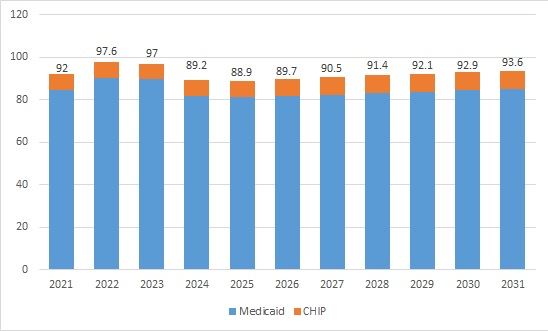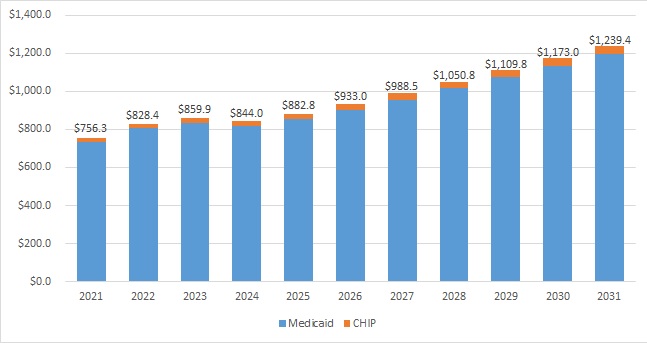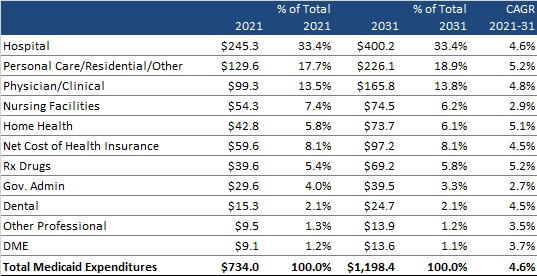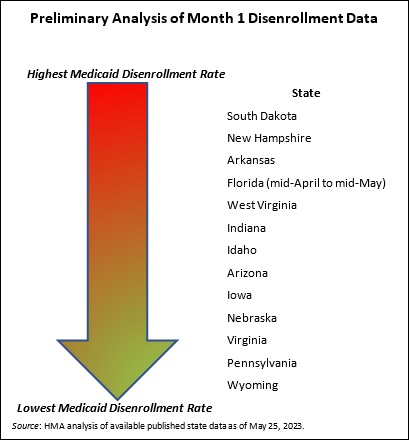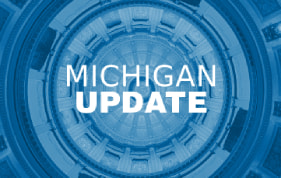C-suite executives from AmeriHealth Caritas, Centene, Community Health Choice of California, Health Care Service Corp., Humana, UnitedHealthcare, and UMPC Health Plan are scheduled to speak on trends in publicly sponsored healthcare at HMA’s Sixth Annual Conference, October 30-31 in Chicago.
They join keynote speaker Alan Weil, editor-in-chief of Health Affairs, and other experts in addressing innovation, value, equity, and growth opportunities and challenges facing Medicaid, Medicare, and Marketplaces across multiple and varied plenary, breakout, and panel sessions. See below for a list of confirmed speakers to date.
The conference also will feature a preconference workshop on October 29, during which HMA behavioral health leaders will address national trends and challenges for system redesign and serving complex populations. Participants will work on solving provider and population challenges during group activities.
We’re excited to welcome hundreds of attendees from health plans, providers, state and federal government, investment firms, and community-based organizations to enjoy top-notch content, interface with leading experts, make new connections, and garner fresh ideas and best practices. Last year’s event drew more than 500 healthcare professionals.
Early bird registration ends July 31.
Confirmed Speakers to Date
Keynote Speaker
Alan Weil, Editor-in-Chief, Health Affairs
Managed Care Speakers to Date (in alphabetical order)
Karen Dale, Chief Diversity, Equity, and Inclusion Officer, AmeriHealth Caritas
Mitchell Evans, Market Vice President, Policy & Strategy, Medicaid & Dual Eligibles, Humana
John Lovelace, President, Government Programs, Individual Advantage, UPMC Health Plan
Eric Mattelson, Chief Actuary, Zing Health
Anne Rote, Medicaid President, Health Care Service Corp.
Tim Spilker, CEO, UnitedHealthcare Community & State
David Thomas, CEO, Markets & Medicaid, Centene
Jaimie White, SVP, Medicaid Operations, Humana
Lisa Wright, President and CEO, Community Health Choice
State Medicaid Directors to Date (in alphabetical order)
Jacey Cooper, State Medicaid Director, Chief Deputy Director for Health Care Programs, California Department of Health Care Services
Kelly Cunningham, Medicaid Administrator, Division of Medical Programs, Illinois Department of Healthcare and Family Services
Drew Snyder, Executive Director, Mississippi Division of Medicaid
Stacie Weeks, Administrator/Medicaid Director, Nevada Department of Health and Human Services Division of Health Care Financing and Policy
Healthcare, Provider, Policy Leaders to Date (in alphabetical order)
Richard Ayoub, CEO, Project Angel Food
Lynn Carr, Chief, Agency Operations, Medical Care Services, County of San Diego Health and Human Services Agency
Liz Goodman, Chief Legal and Public Affairs Officer, Commonwealth Care Alliance
Jesse Hunter, Operating Partner, Welsh, Carson, Anderson & Stowe
Monica Johnson, Director of the 988 & Behavioral Health Crisis Coordinating Office, SAMHSA
Peter Lee, Health Care Policy Catalyst; former Executive Director, Covered California
Kate Massey, Executive Director, MACPAC (Medicaid and CHIP Payment and Access Commission)
Julie Morita, MD, Executive Vice President, Robert Wood Johnson Foundation
Bryan Buckley, Director for Health Equity Initiatives, National Committee for Quality Assurance
James R. Stringham, VP/CEO. Banner Government Health Plans, Banner Health
HMA offers attractive group rates and government discounts as well as sponsorship opportunities that help strengthen brand awareness and provide invaluable exposure and access to healthcare sector leaders. Visit the conference website for a complete list of sponsorship opportunities.
Contact Carl Mercurio for details.





